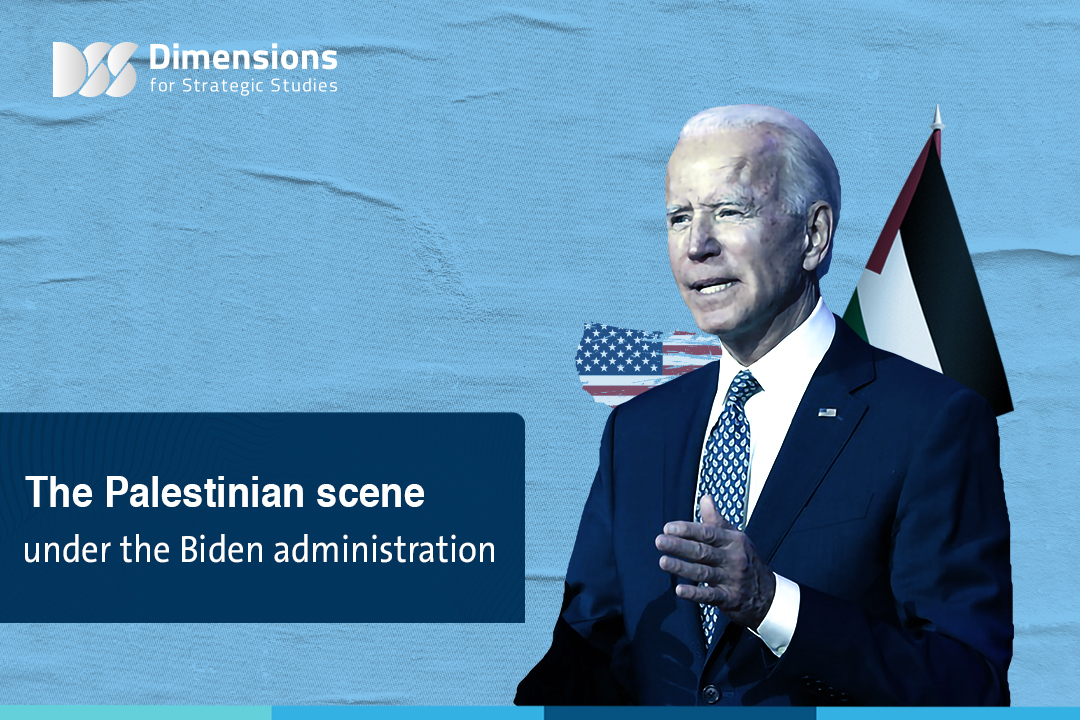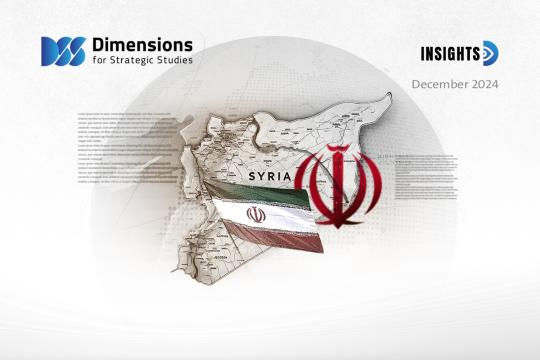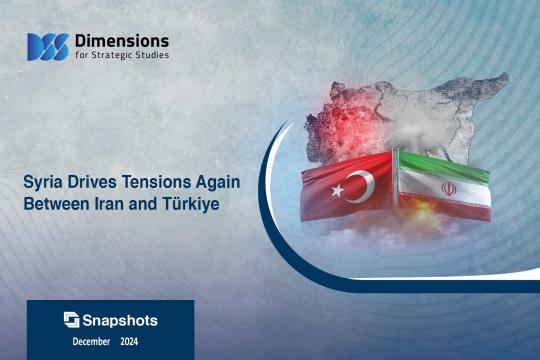
The Palestinian scene under the Biden administration
2021-01-222489 view
Preamble
Joe Biden takes his position in the White House four years after the outgoing President Donald Trump had introduced many changes to U.S. policy toward the Palestinian cause and beyond.
While Biden is expected to repeat a policy similar to that of Obama's towards the Palestinian cause, there is a general pessimism that he could achieve little in favor of the rights of the Palestinian people by putting pressure on Israel, especially with Biden pledging to keep the US embassy in Jerusalem.
The impact of the Trump administration on the Palestinian scene
The Palestinians have always suffered from the bias of the US administrations towards the Israeli occupation side, but with the arrival of Donald Trump and his team, which includes individuals such as Jared Kushner, David Friedman and others who are considered more Zionist than Netanyahu himself, paved the way for an American position that is completely insensitive to the rights of the Palestinians to the point of ignoring them completely.
Trump announced the decision, which no former US president dared to do, to move the US embassy from Tel Aviv to Jerusalem in December 2017. Accordingly, the Palestinian Authority severed its relations with the US administration, and the US administration in turn closed the Liberation Organization office in Washington in September 2018, which was established in 1994.[1]
With Trump recognizing Jerusalem as Israel's capital, he ended any justification for the Palestinians to stick to the negotiating process for a two-state solution.
In early 2020, Trump announced the "Deal of the Century Plan," which was announced as a peace plan, despite the Palestinian side's rejection of it and its lack of participation in it, which is a plan to liquidate the Palestinian issue, as it included a plan to annex 30% of the West Bank lands.
This plan has brought many Arab countries like the UAE, Bahrain, Sudan and Morocco to the box of normalization with Israel, in exchange for Netanyahu's suspension of the annexation of parts of the West Bank, which is questionable according to some official Israeli statements. However, this reality, to which Trump contributed greatly, led to a disruption of the Arab depth regarding the Palestinian issue, after the Arab countries agreed for more than seven decades not to provide general Arab recognition of Israel before the latter recognized a Palestinian state.
On a procedural level, Trump stopped US aid to the Palestinian Authority in February 2019, estimated at $844 million annually. After Washington's funding of the United Nations Relief and Works Agency for Palestine Refugees in the Near East (UNRWA), which supports 5 million Palestinian refugees in the Middle East, was cut off in August 2018.[2]
The Palestinian Authority has officially expressed its desire of Trump's loss, as Palestinian President Mahmoud Abbas's adviser, Nabil Shaath, said, "There was no worse than Trump, and any person will be better than him."[3]
Perhaps it is worth noting here that the Trump period carried some kind of positivity in one aspect, which notifying all Palestinian parties that the Palestinian issue is going through its most dangerous phases, which necessitates the need for solidarity among them and the achievement of national reconciliation. Indeed, the Palestinian factions have begun practical steps since the meeting of the secretary-generals of the factions in Beirut and then the Istanbul talks between the Fatah and Hamas movements, which opened the way for progress towards legislative and presidential elections and the Palestine Liberation Organization during 2021.
First: Determinants of the Palestinian parties vis-à-vis the Biden administration
For the Palestinian Authority, there are several determinants or requests expected from the Biden administration, foremost among which are:
1) Recognition and rehabilitation of the two-State solution.
2) Removal of the US Embassy from the US Consulate in Jerusalem.
3) Re-establish contacts with the Liberation Organization and open the organization's Washington office.
4) Re-assistance to the United Nations Relief and Works Agency for Palestine Refugees in the Near East (UNRWA).
5) Financial support to the Palestinian Authority.
6) Pressure on Israel with regard to settlement.
Biden is expected to ease the pressure that Trump has placed on the Palestinian Authority. It will be easy for him to reopen the office of the Liberation Organization, and to restore financial aid; however, the most important point is whether Biden can reopen the negotiations process on the two-state solution and put it in the context of completion. This is still surrounded by many question marks.
In this context, Presidential Advisor Nabil Shaa stated his opinion about Biden: "I do not guarantee anything, and I do not know how much he will be better than Trump, what his new attitudes are, or how long it will take him to fix what Trump has ruined." As Palestinians people and leadership, we are called upon to remain ready and steadfast and to strengthen our internal front with unity.[4]
In any case, the Authority began talks with the Biden team, opening early channels of communication with Biden and his team through Palestinian businessmen and figures from the Palestinian and Arab communities in the United States, which are working to establish direct communication between the Palestinian leadership and Biden advisors.[5]
As for the position of other factions, especially Hamas and Islamic Jihad, getting rid of Trump's support for the Zionist right is a good thing, but that does not mean that the arrival of Biden will be good for the Palestinian cause, as the issue of Israel's support and superiority in the region is shared between the Democratic and Republican parties in the United States. In other words, Biden's political vision of the Palestinian cause will be similar to that of the Obama administration, and it must be remembered that Israel waged three devastating wars on Gaza under Obama in 2009, 2012, and 2014.
Despite this, Hamas political bureau chief Ismail Haniyeh invited President-elect Joe Biden to correct a historically unjust course of American policies towards the Palestinian people, which made the United States a partner to injustice and aggression, disturbed stability in the region and the world, and prevented the American ability to be a central party in resolving conflicts. He also called on Haniyeh to "end all decisions related to attempts to liquidate the refugee issue, especially reducing support for the United Nations Relief and Works Agency for Palestine Refugees in the Near East in an attempt to end it."
Haniyeh also called on the United States Administration to "respect the will of the Palestinian people, their democratic choices and their path of struggle, as well as to desist from exerting pressure on the States and peoples of the region in order to impose normalization with occupation".[6]
While Haniyeh's call for Biden illustrates the position of Hamas, which the United States Administration considers a terrorist movement, the demands he has made also bear the intersection of Hamas and the Palestinian Authority and indicate Hamas's desire to become more involved in the future Palestinian regime.
Second: Determinants of the Biden administration towards the Palestinian issue
Perhaps it is important to wait to see Biden's practical steps and to what region of the world will the focus of his administration go, but if we want to analyze Biden's speech and the Biden team, Biden issued, on August 29, 2020, a comprehensive program that defines his plan for partnership with the Arab-American community, including its foreign policy towards a range of issues in the Arab region, including the Palestinian issue. The program, entitled "Joe Biden and the Arab-American community: a plan for partnership",[7] as his deputy, Kamala Harris, had clearly pointed out in one of her statements to the administration's possible position on the Palestinian issue, and we can summarize these policies in the following points:
1) Restoration of democratic administration and relations with the Palestinians.
2) Reopening PLO Mission headquarters in Washington.
3) Immediate steps to restore economic and humanitarian assistance to the Palestinians.
4) Addressing the humanitarian crisis in Gaza.
5) Reopening of the United States Consulate in the eastern part of occupied Jerusalem.
6) Oppose unilateral Israeli actions that undermine the two-State solution.
7) Opposition to annexation and settlement expansion.[8]
These positions intersect with the expectations and demands of the Palestinian Authority. These points reflect the repetition of the Obama administration's position, but it is important to note that Harris did not mention the return of the US embassy to Tel Aviv. This is, of course, in line with Biden's pledge to keep the embassy in its new location in Jerusalem.
Third: The expected impact of the election of Biden on the Palestinian issue
There is a direct and indirect impact of Biden on the Palestinian issue. The direct represents the effectiveness of Washington's role in pressing for the achievement of a logical agreement on the one hand, and Biden's relationship with the Palestinian and Israeli sides on the other; while the indirect impact is the relationship of the Biden administration with the main regional such as Saudi Arabia, Egypt, Turkey and Iran.
The immediate effect is to relieve the pressure on the Palestinian Authority, which Trump brought to a state of failure that threatened its survival, as the Authority had been founded on the idea of a two-state solution, but Trump buried it by announcing the deal of the century. The Authority will thus breathe a sigh of relief politically and financially, but without exaggerating the expectation of merging into the formulas of an intervention on its favor. An important point is the rise of the right in Israel, which wants to achieve greater usurpation of Palestinian rights, which is rejected by the Palestinian Authority as well as the rest of the factions. The power would also benefit from Biden's weakened harmony with Netanyahu compared to Netanyahu's and Trump's relationship, but this would be of little importance if the upcoming election in March led to Netanyahu's likely exit from the political game to prison. It will remain important to know who is next in line to be Prime Minister of the occupying Power to determine the nature of understanding between him and Biden, with fixed parameters in the relationship between the two parties that are not significantly influenced by the change of persons.
The indirect effect is Biden's relationship with the active Arab and non-Arab countries, who have good relations with the components of the Palestinian people. This in turn will be reflected in the Palestinian attitudes and behavior. In this regard, Biden supported the recent normalization processes, but of course the next policy will be within the complexity of all the files in the region. It is important to wait until we see how the road map of Washington's dealings with the region will be formed.
It is perhaps important to add here that Biden's ability to change what has been applied on the ground as a fait accompli may be weak or non-existent, as is the case with the transfer of the embassy, but in matters that have not been implemented, he may try to put obstacles in its way, such as the annexation of parts of the West Bank and the expansion of settlement.
CONCLUSION
Biden has multiple priorities that are considered higher on his agenda than the Palestinian issue, and the well-known experience of Biden and his team is that he is also supportive of Israel. He has said this himself on more than one occasion, and thus will be the maximum that Biden can do from pressures on Israel formally and will not go beyond not using the veto in favor of Israel as Obama did in his last days. U.S. positioning will thus likely be repetitive of the Obama administration's positioning with more complexity and difficulty as the right rises and Netanyahu is able to succeed in normalizing with a range of Arab countries.
Concerning the Palestinian issue, the Authority will reopen the door of a settlement, even though it is aware of the difficulty of achieving any progress. However, the experience of the Trump administration has made it imperative for the Palestinians to work to establish a unified position based on the rights of the Palestinian people while avoiding the Israeli distraction formulas in which the US administration helped in usurpation of Palestinian people rights. The looming Palestinian elections may be a positive step if they are based on national partnership rather than internal political maneuvering based on representation and legitimacy.





